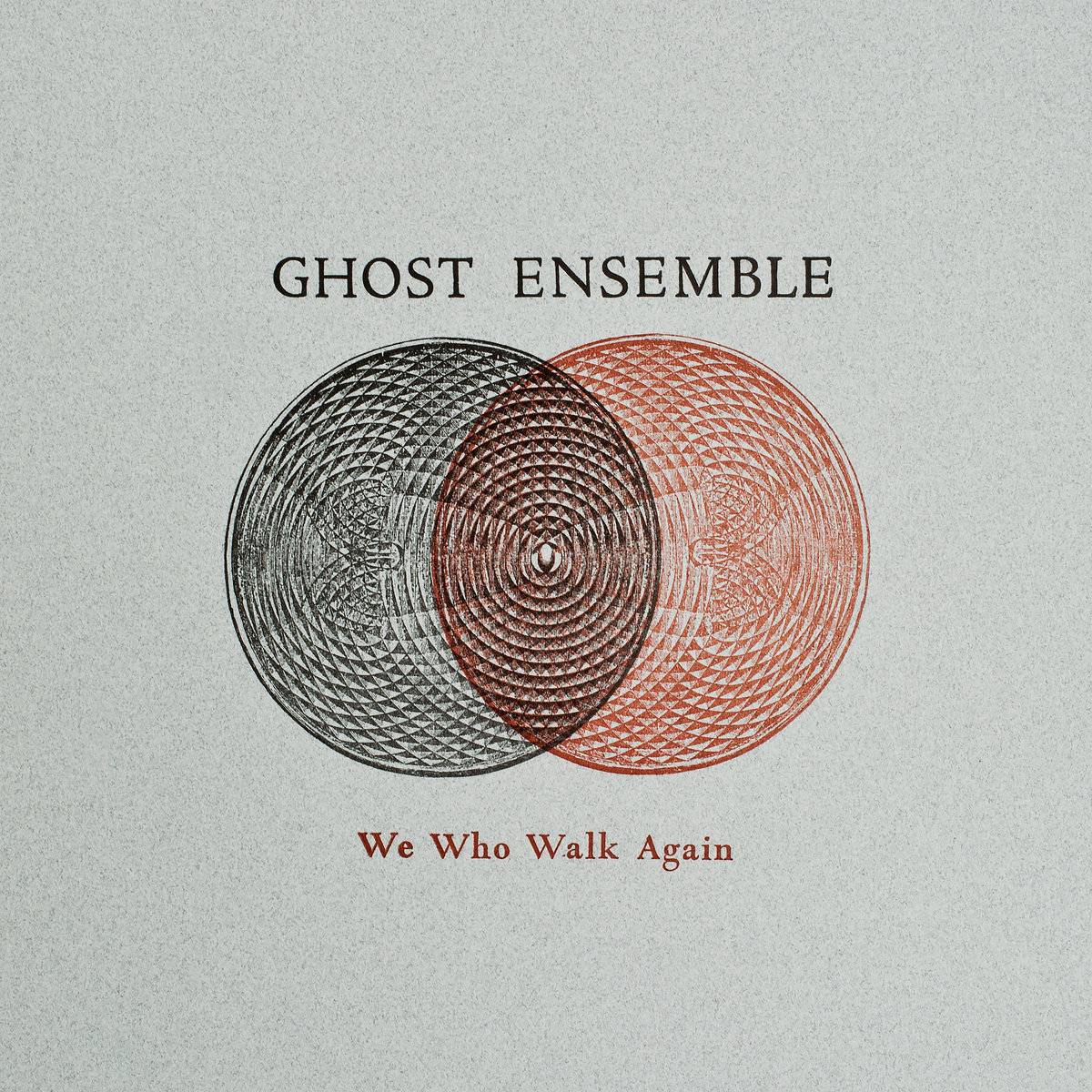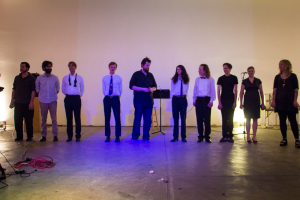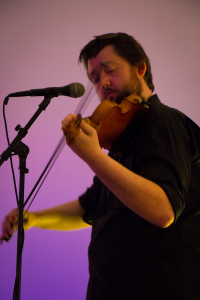
We Who Walk Again
Ghost Ensemble
Indexical LP/Download
Since 2012, New York’s Ghost Ensemble has pursued a deep listening ethos that incorporates a range of repertoire, both pieces by ensemble members and works by composers such as David Bird, Kyle Gann, Giacinto Scelsi, and Gerard Grisey. Any ensemble in the US that references “deep listening” invariably is also interested in Deep Listening, the piece that evolved into a discipline and subsequent body of musical and theoretical work from sound artist Pauline Oliveros.
Since its inception Ghost Ensemble has been associated with Oliveros’ work, both her compositions and sound practices. It is fitting that We Who Walk Again, their debut recording, features the first studio recording of the Oliveros piece “Angels and Demons.” A text score from 1980, its primary guideline is as follows: “any sound that has been heard inwardly first may be made.” Players may take on the role of “Angels,” the meditation’s “guardian spirits,” or Demons, “individual spirits of creative genius;” they may also switch back and forth between roles. Here the piece manifests itself in an initial testing out period of slow individual tones that is gradually varied by means of timbre, density, and use of dissonance. Starting in the Feldman realm of spare pianissimo fragments, a long range crescendo shapes the piece. It is enabled by successively more penetrating held pitches, extended techniques, syncopated percussion, and an eventual blossoming of rangy melodic gestures. A belated denouement supplies a few furtive valedictions, but no dramatic close is supplied (nor does one seem necessary).
The group’s oboist Sky Macklay is also a composer on the rise, with a number of high profile performances and commissions to her credit. Macklay’s 60 Degree Mirrors revels in extended techniques available to winds. Her command of multiphonics and microtones on the oboe is prodigious and she gives flutist Martha Cargo a detailed part as well. The piece also has spectral roots, with shimmering overtones, particularly “crunchy” upper partials, demonstrating an edgier side of the “deep listening” continuum. 60 Degree Mirrors is not just technically sophisticated; it has considerable dramatic heft and proves to be a thrilling listen.
Ghost Ensemble founder, accordionist and composer Ben Richter, provides the recording’s other piece, Wind People. More than double the length of the Macklay and Oliveros performances, it affords the group the opportunity to stretch out and engage in the shaping of a larger arc. Long glissandos played by bassist James Ilgenfritz provide a particularly resonant touchstone, and similar sliding tones from violist Hannah Levinson and cellist Maria Hadge underscore its structural character. Meanwhile, the winds explore all manner of overtones, sometimes punctuating the proceedings with held pitches appearing in contrast to the yawning slides, at others engaging in pitch bends of their own. Percussionists Chris Nappi and Damon Loren Baker provide under-girding drums, subtle yet insistent. Richter and harpist Lucia Helen Stavros sometimes pepper the texture with melodic gestures, but more often are the harmonic “middle” that sustains the fabric of the piece. Over time, sustain becomes a powerful force traversing all instruments and registers, and sumptuous overtone chords saturate the work. A coda provides a long diminuendo in which overtones fade into thrumming drums, drones, and string glissandos. Wind Music is a well-crafted and eloquent work.
Of Wind Music, Richter says that he sought to “draw a sense of peace and comfort from our smallness, transience, and fragility in the face of an overwhelming immensity, the music mirroring the constant ebb and flow visible when zooming in or out to quantum or geological time.”
Amid today’s tumult, drawing peace and comfort from deep listening is a worthy goal, one that Ghost Ensemble appears poised to attain often.


